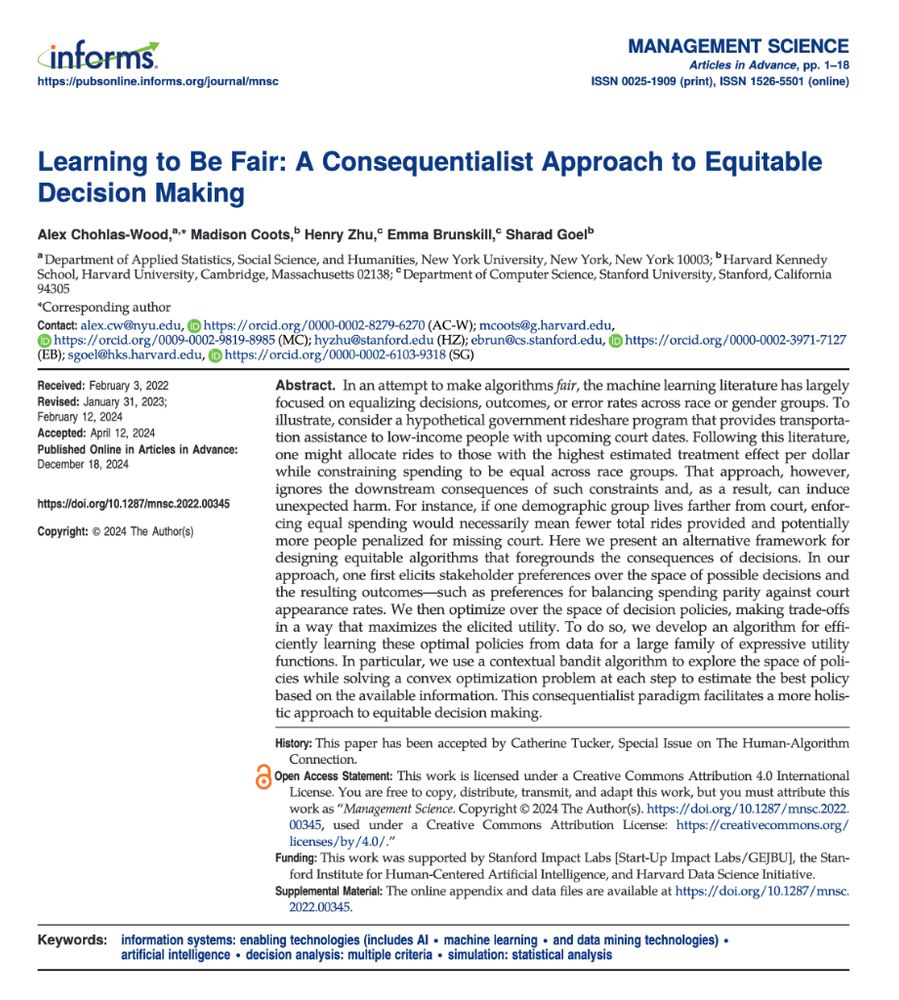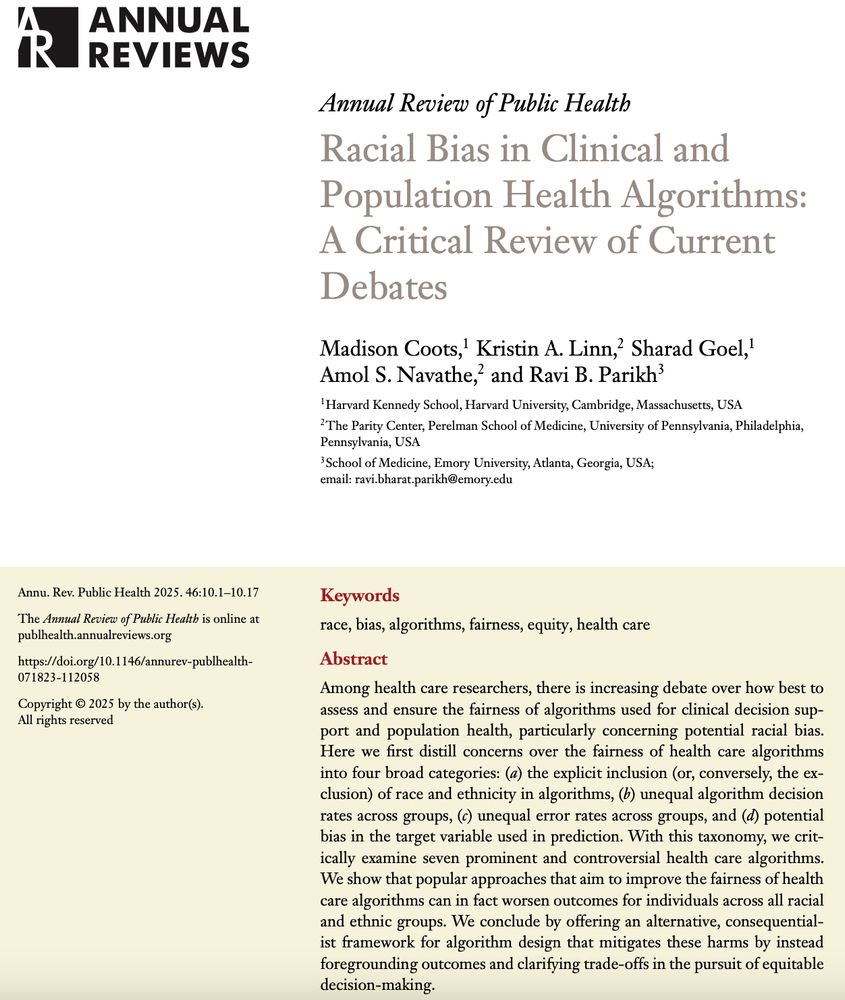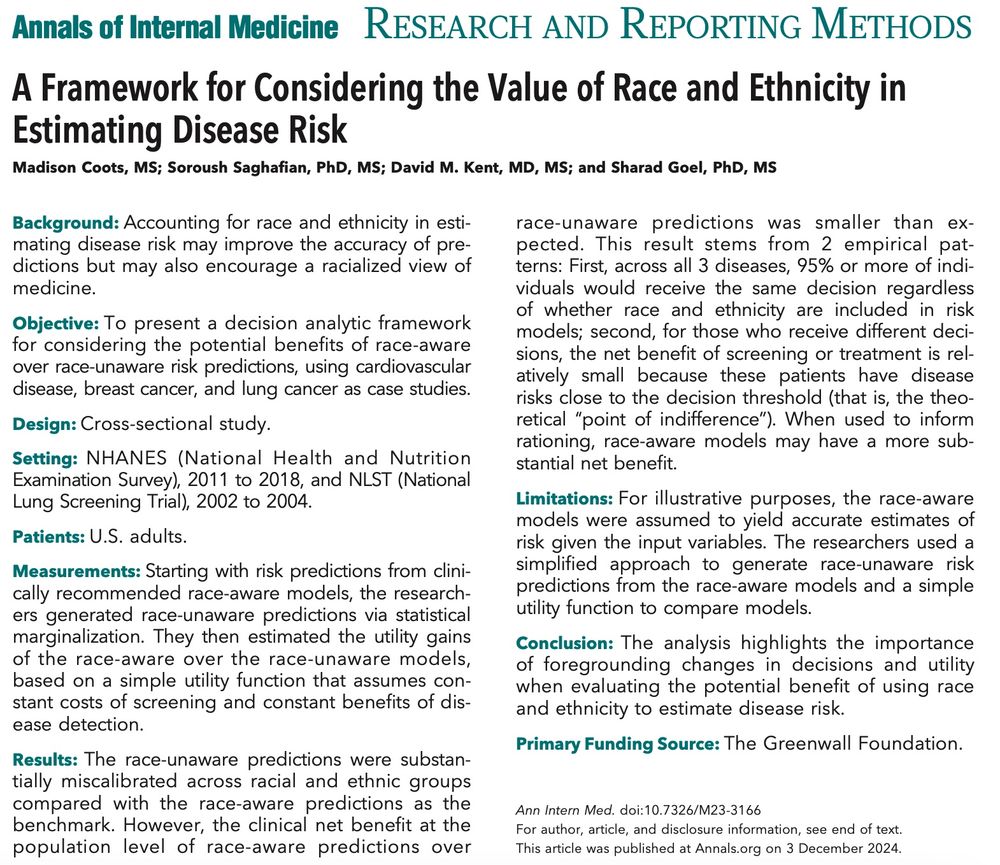Madison Coots
@madisoncoots.com
16 followers
11 following
15 posts
Public Policy PhD Student @Harvard 📚 | @Stanford CS Alum 👩🏻💻 | Plant Hobbyist 🌱 | Interested in using data science to design policy and drive reform
Posts
Media
Videos
Starter Packs
Reposted by Madison Coots
Madison Coots
@madisoncoots.com
· Dec 13
Madison Coots
@madisoncoots.com
· Dec 13
Madison Coots
@madisoncoots.com
· Dec 13
Madison Coots
@madisoncoots.com
· Dec 5

A Framework for Considering the Value of Race and Ethnicity in Estimating Disease Risk | Annals of Internal Medicine
Background: Accounting for race and ethnicity in estimating disease risk may improve the accuracy of predictions but may also encourage a racialized view of medicine. Objective: To present a decision ...
annals.org
Madison Coots
@madisoncoots.com
· Dec 5
Madison Coots
@madisoncoots.com
· Dec 5
Madison Coots
@madisoncoots.com
· Dec 5
Madison Coots
@madisoncoots.com
· Dec 5






